1950 Ford Custom Tudor, Very Original, Straight Six!!!
1950 Ford Custom Tudor Sedan Custom for sale in Saint Louis, Missouri, United States
| Condition: | Used |
| Item location: | Saint Louis, Missouri, United States |
| Make: | Ford |
| Model: | Custom Tudor Sedan |
| SubModel: | Custom |
| Type: | Sedan |
| Trim: | Custom |
| Year: | 1950 |
| Mileage: | 60,269 |
| VIN: | H0BF103964 |
| Color: | Blue |
| Engine size: | 226 6 |
| Power options: | -- |
| Fuel: | Gasoline |
| Transmission: | Manual |
| Drive type: | Sedan |
| Interior color: | Gray |
| Options: | -- |
| Vehicle Title: | Clear |
| Want to buy? | Contact seller! |
Description for Ford Custom Tudor Sedan 1950
Second model year for Ford’s popular “Bullet Nose” modelsOverall very original uncut Shoebox Ford
Original Borg-Warner three-speed manual transmission with overdrive 3.73 gearing
Original engine
Bimini Blue exterior and blue interior
Original glass
New fuel pump, battery, dual exhausts
Rear fender skirts
Under-dash heater
Need a new Shoebox Ford for your collection? MotoeXotica has just the right fit, with this 1950 Ford Custom Tudor Sedan. Made in Ford...’s Buffalo, New York factory, this car was an early 1950 model, according to its VIN. This is one of the most original uncut bullet nose Fords that we have seen in some time.
Finished in Bimini Blue, its paint and trim are in overall very good condition, with just a few minor blemishes visible on the roof upon close inspection. The original windows are clear and intact, as are the vehicle’s lights, which are haze-free look great. This shoebox rolls on wide whitewall Guardsman bias-ply tires, size 6.70-15 at all four corners, surrounding full moon wheel covers. All of the car’s body panels fit solidly and are straight, the trunk is in good condition and comes with a full-sized spare tire, the engine bay is tidy, the battery is new and the bumpers look fantastic.
As the ‘6’ in the center of its bullet nose indicates, under the hood is Ford’s 226 CID L-head straight six-cylinder engine. Buttoned to this engine are a Borg-Warner three-speed manual transmission with overdrive and a 3.73:1 rear end. This is reportedly, the car’s original drivetrain. Besides the battery, other new parts include the fuel pump, springs and dual exhausts.
Inside, the blue bench seats look very good, as does the matching carpet. The blue headliner is in very good order and the silver metal instrument panel is eye-catching and all of its gauges are operational. The original two-spoke steering wheel is in decent order while the inner door panels look good, as does the car’s mirror glass. Completing the interior are a pushbutton factory AM radio and an under-the-dash heater.
The 1949 Ford was the first all-new automobile design introduced by the Big Three after World War II; civilian production having been suspended during the war and the 1946-1948 models from Ford, GM and Chrysler were updates of their pre-war models. Popularly called the "Shoebox Ford" for its slab-sided, "ponton" design, the 1949 Ford is credited both with saving Ford and ushering in modern streamlined car design with changes such as integrated fenders and more. The design would continue through the 1951 model year.
Save for its drive train, this was an all-new car in every way, with a modern ladder frame supporting a coil spring independent suspension in front and longitudinal semi-elliptical springs in back. The engine was moved forward to make more room in the passenger compartment and the antiquated "torque tube" was replaced by a modern drive shaft. Ford's popular 226 CID L-head straight-6 and 239 CID Flathead V8 remained.
The 1949 models debuted at a gala at the Waldorf-Astoria Hotel in New York City in June 1948, with a carousel of the new Fords complemented by a revolving demonstration of the new chassis. The new integrated steel structure was advertised as a “lifeguard body,” and even the woody wagon was steel at heart. The convertible frame had an “X member” for structural rigidity.
From a customer's perspective, the old Custom, De Luxe, and Super De Luxe lines were replaced by new Standard and Custom trims and the cars gained a modern look with completely integrated rear fenders and just a hint of a fender in front.
The 1949 and 1950 styling was similar, with a single central "bullet" in the frowning chrome grille. In the center there was a red space that had either a 6 or 8 depending if the car had the six-cylinder engine or the V8. The trim lines were renamed as well, with “Standard” becoming “Deluxe” and “Custom” renamed “Custom Deluxe.” These new Fords got the now-famous “Ford Crest” which appeared on the division's vehicles for many decades in one form or another.
Competition to this Ford in 1950 included Chevrolet’s Styleline Deluxe Two-door, Dodge’s Deluxe Coupe, Hudson’s Pacemaker Two-door Brougham, Nash’s Statesman Custom Two-door and Plymouth’s Special Deluxe Coupe.
This car is currently located at our facility in St. Louis, Missouri. Current mileage on the odometer shows 60,269 miles. It is sold as is, where is, on a clean and clear, mileage exempt title. GET OUT AND DRIVE!!!
VIN: H0BF103964
Note: Please see full terms and conditions listed below that pertain to the purchase of any said vehicle, thank you.
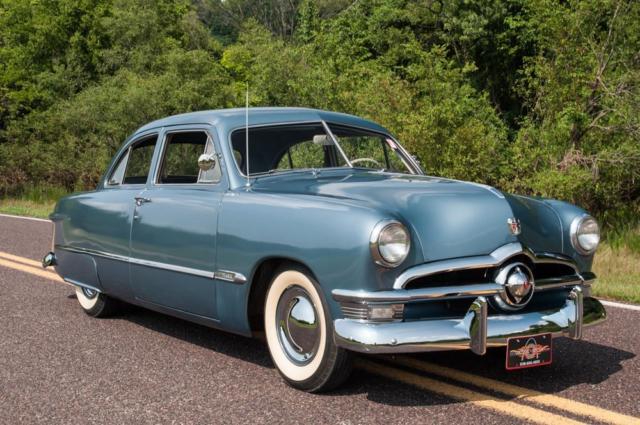
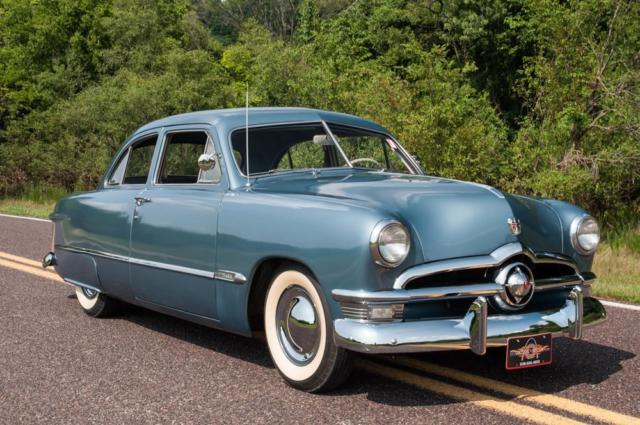
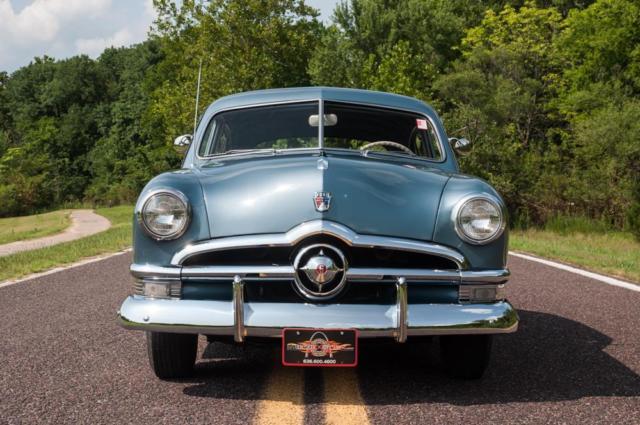
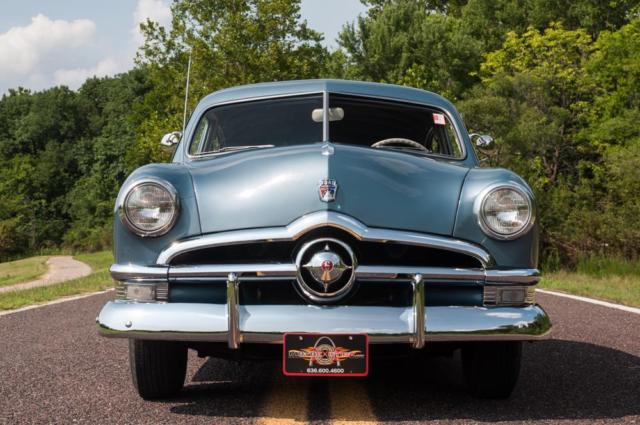
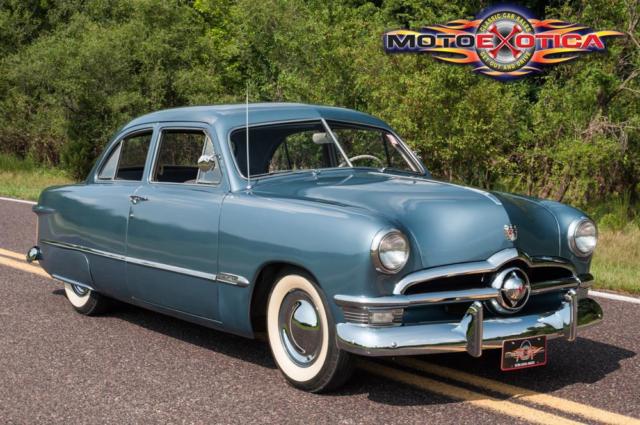
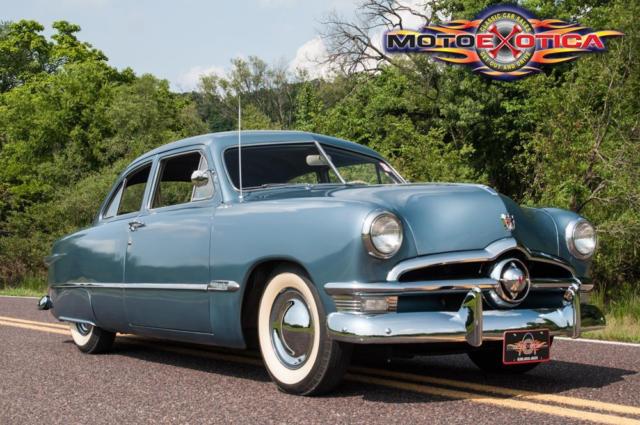

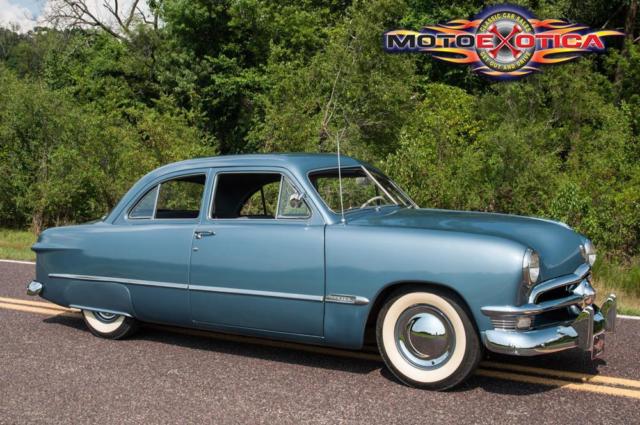
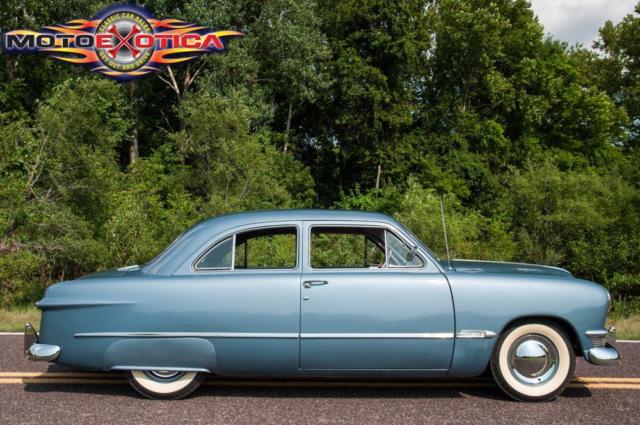
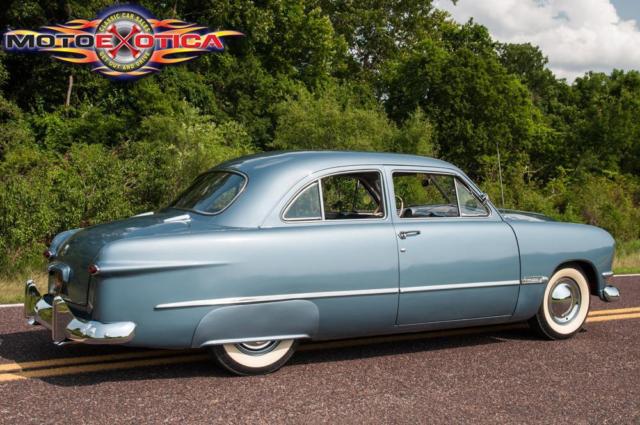
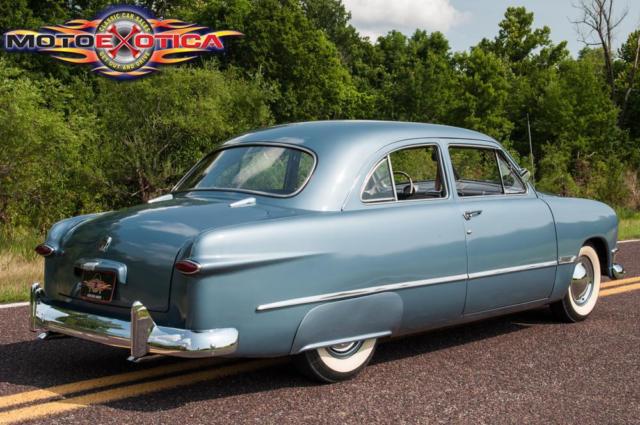
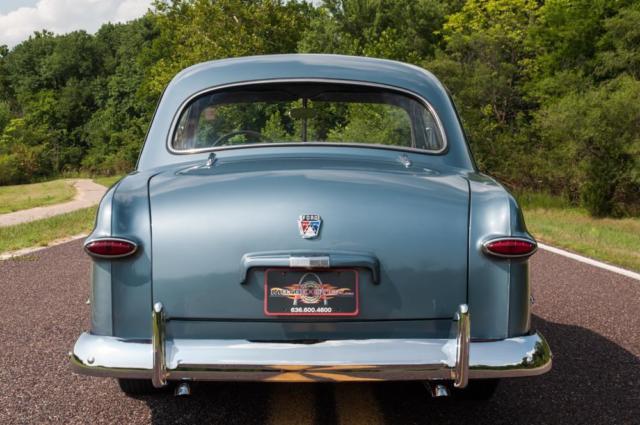
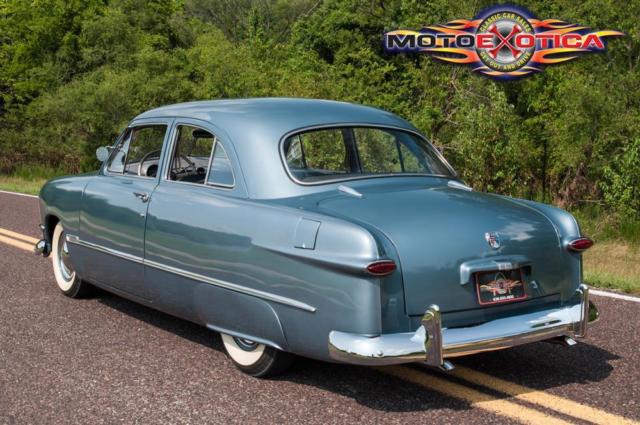
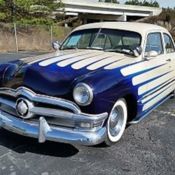 1950 Ford custom Tudor
1950 Ford custom Tudor
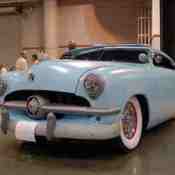 1950 Ford Tudor Chopped Custom
1950 Ford Tudor Chopped Custom
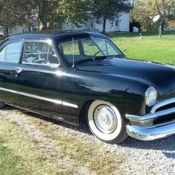 1950 Ford Tudor Mild Custom
1950 Ford Tudor Mild Custom
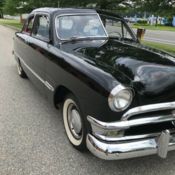 1950 Ford Tudor Sedan Custom
1950 Ford Tudor Sedan Custom
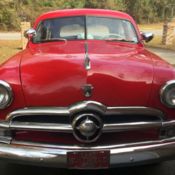 1950 Ford Tudor Custom Sedan
1950 Ford Tudor Custom Sedan
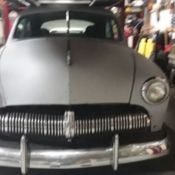 1950 Ford Custom Tudor Business Coupe
1950 Ford Custom Tudor Business Coupe
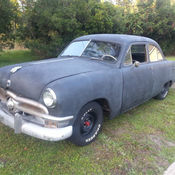 1950 FORD TUDOR CUSTOM !!! PRICE REDUCED !!!
1950 FORD TUDOR CUSTOM !!! PRICE REDUCED !!!